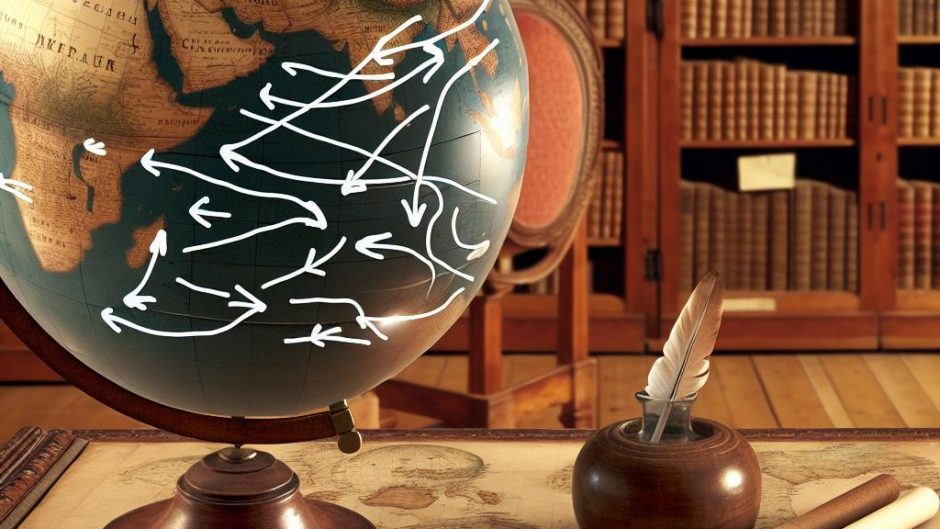Understanding Empire Expansion
Expanding an empire historically involves a strategic combination of military conquest, economic influence, and diplomatic negotiations. While the concept is often rooted in historical contexts, understanding these methodologies provides insights into statecraft and international relations. This exploration will delve into the components of empire expansion, illustrating how these elements have manifested both in the past and within the frameworks of today.
Military Conquest: The Pillars and Pitfalls
Military conquest has historically been one of the core methods employed by empires to expand their territories. This strategy often involves the use of armed forces to annex or control new regions. Prominent examples of this can be seen in the conquests conducted by the Roman and Mongol Empires, known for their vast expansions through military might.
Skilled leadership and command are at the heart of successful military endeavors. Strategic planning and decisive leadership enable an empire to execute complex operations and manage armies efficiently. Figures such as Alexander the Great and Genghis Khan exemplify leaders whose military acumen facilitated vast territorial expansions.
Another critical element is the management of resources and logistics. An empire cannot sustain prolonged military campaigns without efficient supply lines and the ability to allocate resources effectively. This involves provisioning troops, ensuring the availability of food, weapons, and other essentials, and developing infrastructure to support the military’s needs during conquests.
Technological superiority provides a significant edge in military confrontations. Empires that have harnessed advances in military technology often gain advantages over their adversaries. From the iron weaponry of the ancient Assyrians to the strategic use of cavalry by the Mongols, technology has often tipped the scales in favor of expansionist empires.
Economic Influence: Beyond the Battlefield
While military might establishes initial control, maintaining and expanding influence often relies heavily on economic power. Economic influence serves as a peaceful yet potent tool for expansion, often laying the groundwork for sustained control and integration of new territories.
*Trade agreements and economic policy* are crucial instruments in expanding influence. By establishing a network of trade routes and formal trade agreements, empires can create economic dependencies. This economic integration incentivizes local economies to align with the expansionist power’s interests.
Another strategic approach is through investment in infrastructure. Building infrastructure such as roads, ports, and communication networks ensures economic growth and integration of regions under the empire’s control. These investments not only facilitate trade and movement but also help in binding distant territories to the central authority economically and administratively.
*Cultural exchange and economic migration* represent softer approaches to solidify influence. Encouraging migration for economic opportunities or fostering cultural exchanges helps in creating a shared identity or allegiance to the empire. Such strategies ensure that local populations become vested in the success and stability of the empire’s rule.
Diplomatic Negotiations: The Art of Peaceful Expansion
Diplomacy is an essential tool in the expansionist toolkit, particularly when aiming for peaceful territorial acquisitions or influence. Diplomatic approaches allow for extending territory and influence without resorting to conflict, which is often costly and resource-draining.
*Treaties and alliances* are powerful diplomatic instruments. By forming strategic alliances with influential local powers or other empires, expansionist states can secure territories with minimal resistance. Alliances might include mutual defense agreements or economic partnerships that benefit both parties.
Historically, *political marriages and personal unions* have been utilized to unify territories and secure diplomatic ties. Marriages between royal families can bring about alliances and legitimize claims to territories, ensuring peaceful transitions of power and influence. Such arrangements often result in lasting political and cultural connections between different regions.
*Recognition and legitimacy* are cornerstones of effective diplomatic strategies. Securing recognition from powerful entities or local leaders can aid in establishing and maintaining control. This form of diplomatic endorsement helps to legitimize the expansionist power’s claim to new territories, reducing resistance and fostering stability.
Modern Implications of Empire Expansion
In contemporary contexts, the idea of empire expansion has transformed into more metaphorical forms, focusing on economic influence or technological dominance rather than physical conquest. The principles remain relevant, particularly when analyzing the roles of multinational corporations and global investors in today’s world.
Businesses and investors employ economic strategies reminiscent of traditional empire expansion to extend their reach across international borders. These strategies involve establishing strong market positions, forming transnational alliances, and leveraging financial resources to exert influence on a global scale.
Modern geopolitics and international relations continue to draw lessons from historical expansion strategies. Understanding these dynamics is crucial for interpreting current global power structures and economic relationships. For further exploration of these complex dynamics, one might consult resources like the Council on Foreign Relations, which offers comprehensive analyses and insights into international affairs.
In conclusion, while traditional empire expansion through territorial conquest is largely a thing of the past, its principles persist in contemporary strategies related to economics and international relations. Modern strategies continue to draw from historical precedents, applying lessons learned from the complex interplay between military, economic, and diplomatic efforts. By understanding these methodologies, one gains a deeper comprehension of both historical and current global dynamics, underscoring the enduring relevance of empire expansion concepts in shaping the world.
This article was last updated on: June 8, 2025






Recent Comments